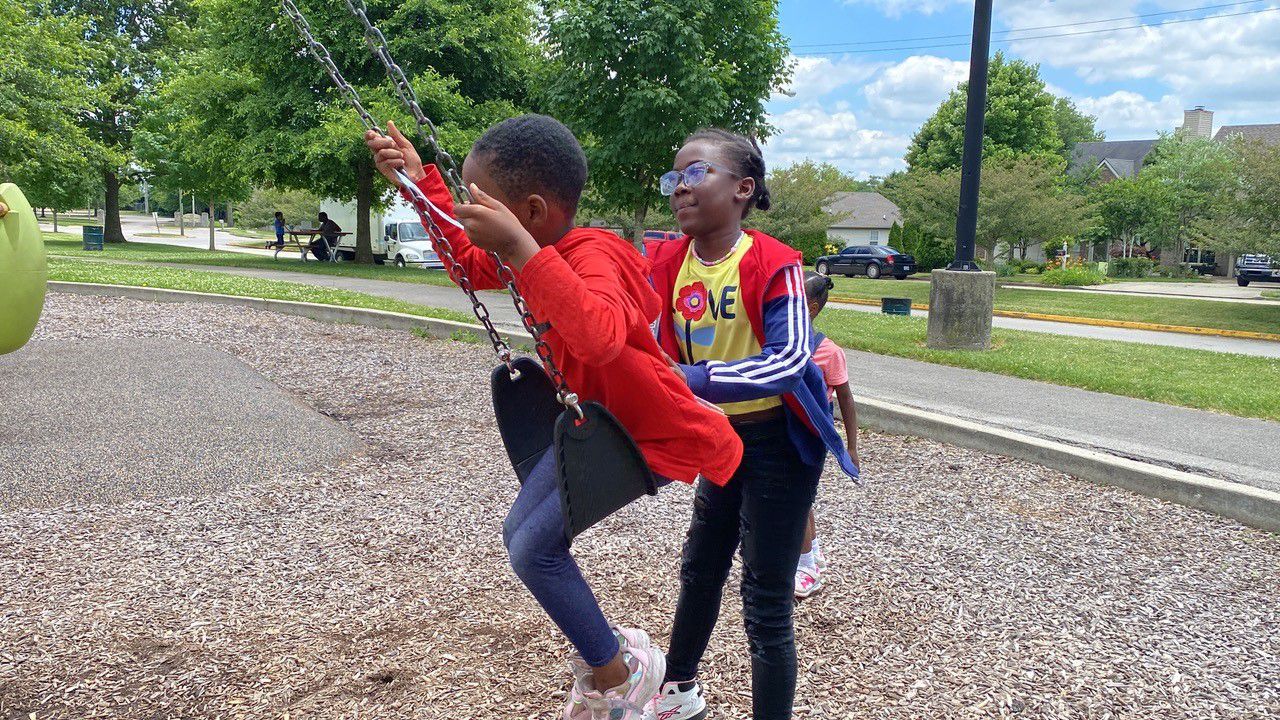LEXINGTON, Ky. — Swahili is the third most spoken language in Lexington, according to the city’s website, but learning centers are limited for people wanting to speak and learn the language.
That’s something the Rafiki Center hopes to change.
What You Need To Know
- Elisha Mutayongwa established the Rafiki Center in 2019
- Mutayongwa teaches nearly 60 children at the Rafiki Center summer camp
- The summer camp teaches Swahili to native and nonnative speakers
- Mutayongwa takes pride in teaching Swahili, and he wants younger generations not to forget their native language
Elisha Mutayongwa is hosting his third annual eight-week camp for school-aged children to connect to their native language in Lexington. It’s called the Rafiki Center. It teaches students from 5 years old to 17 years old in the Central Kentucky area.
Mutayongwa established the Rafiki Center in 2019. He’s a Democratic Republic of Congo refugee who came to Lexington 10 years ago and immediately started tapping into his passion for teaching Swahili.
“When you’re a first-generation immigrant or refugee that speaks Swahili and it’s only your parents speaking, what about the generation we’re leaving behind? Are they holding on to their language?” Mutayongwa said.

Most children wouldn’t choose to be in class for summer, but Rafiki Center students are diving in with the help of Mutayongwa and camp volunteers.
The center prides itself on teaching native and non-native speakers. He starts each lesson with simple words like how to say students’ names in Swahili, or even naming fruits and vegetables.
“Say your name, then your age. So your name is Lalia, you’re 14 years old,” Mutayongwa said while leading a class.
He waits for the answer and expects students to know it. The 27-year-old teaches 60 children for eight weeks out of the summer, many of whom are refugees. His passion has always been teaching Swahili to younger generations.
Happiness Bahati is one of 60 students attending the camp during the summer, but she also receives Swahili lessons during the school year from Mutayongwa. For Bahati, the best part about learning her native language is simple.
“I get to communicate with my friends and they understand what I’m saying,” Bahati said.
When the students aren’t in class, they’re exploring what activities Lexington offers. Mutayongwa said learning Swahili is just as important as exploring their community.
“We help parents in the smallest way we can, just to make sure there’s a community here that we want to create and we want to build,” he said. “[Swahili speakers] want to feel a part of it.”
Feeling part of a community is something Mutayongwa said many of his students struggle with, but the more he’s able to teach them Swahili, the more connected they feel toward their culture.
A quick google search shows there are only 10 Swahili speaking language centers in the state. But teaching Swahili doesn’t end at summer camp. Mutayongwa said school year activities and field trips will continue at the Rafiki Center for the upcoming year.
Both native and nonnative Swahili speakers are invited. Interested children and parents should contact rafikicenter@gmail.com.



